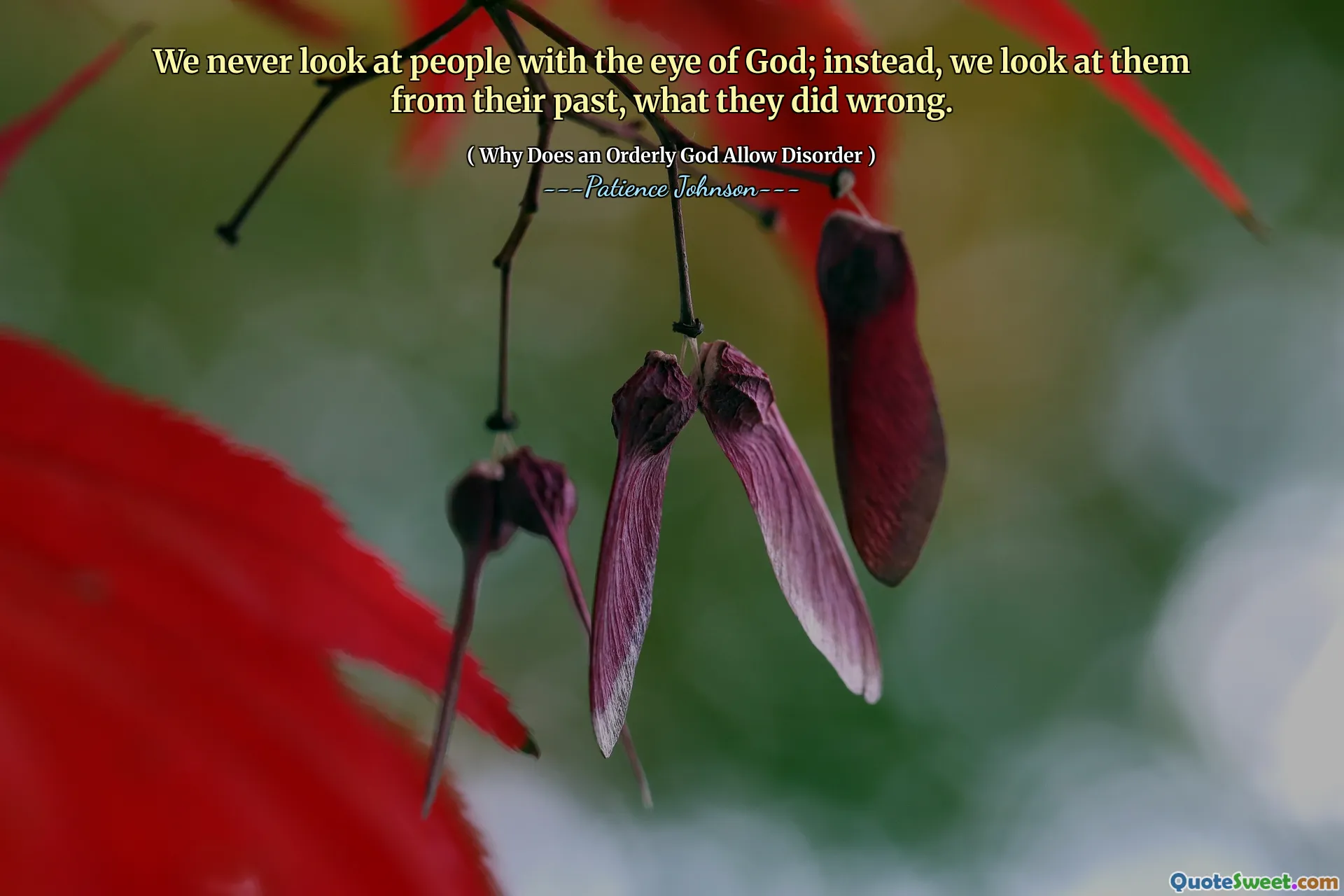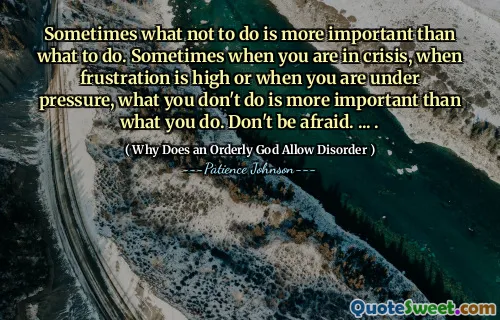
We never look at people with the eye of God; instead, we look at them from their past, what they did wrong.
The quote highlights a profound flaw in human judgment: our tendency to focus on people's past mistakes rather than their potential for growth or change. Often, individuals are defined by their lowest moments or errors, and this perspective can hinder compassion and rehabilitation. From a spiritual standpoint, viewing others through the eye of God involves unconditional love and boundless forgiveness, embracing the possibility for redemption. When we judge someone solely based on their past, we deny them the opportunity to evolve and demonstrate that they are more than their previous actions. This mindset not only perpetuates cycles of guilt and shame but also can discourage individuals from striving for betterment, fearing that they will forever be labeled by their mistakes. Recognizing the difference between judgment rooted in human imperfection and divine forgiveness opens the door for greater empathy and understanding. It's crucial to remember that everyone is on a journey of growth, often marked by mistakes which serve as lessons rather than irredeemable flaws. Cultivating a perspective that mirrors divine compassion invites us to see beyond faults toward potential change. When we learn to see people with kindness, patience, and forgiveness, we promote healing and foster relationships built on genuine understanding. Doing so, we align more closely with spiritual principles, enriching our lives and encouraging a more forgiving society.






